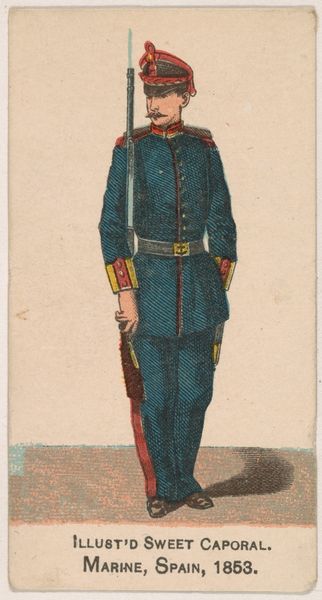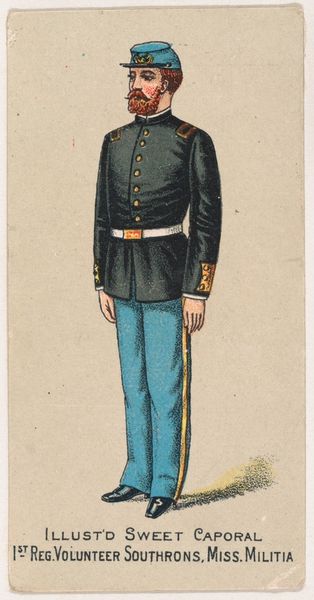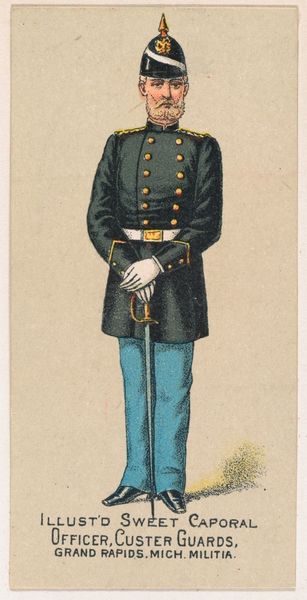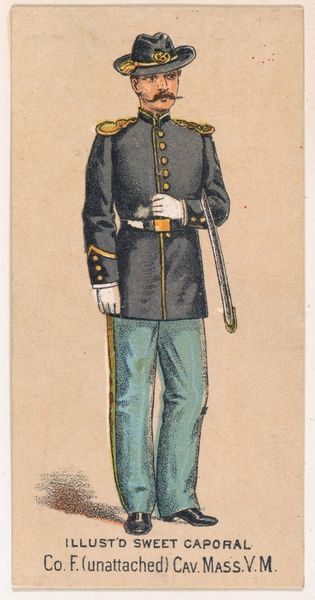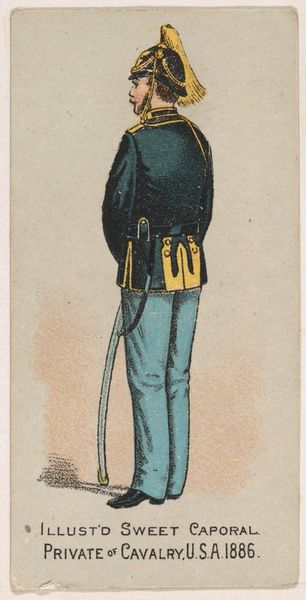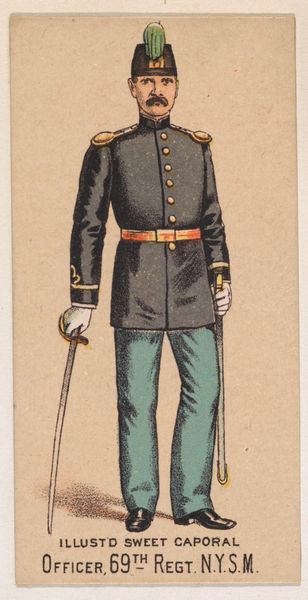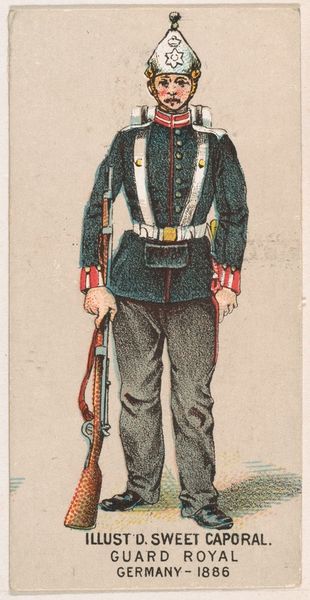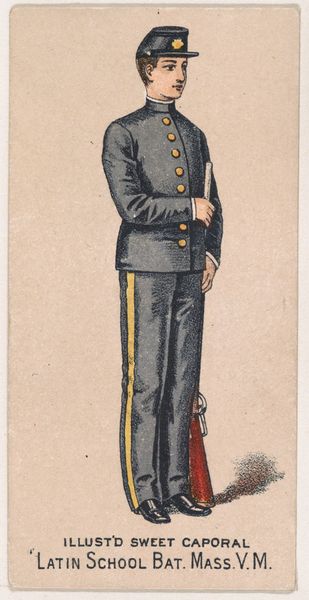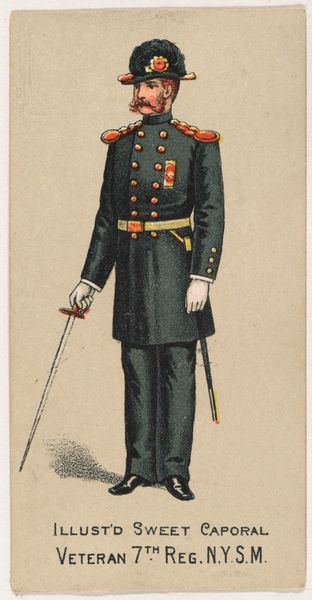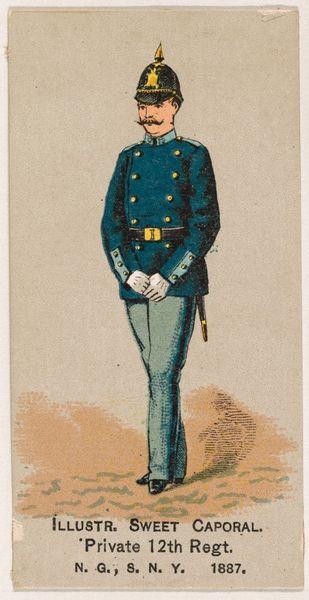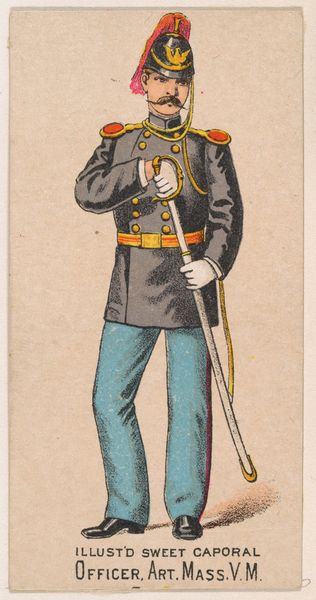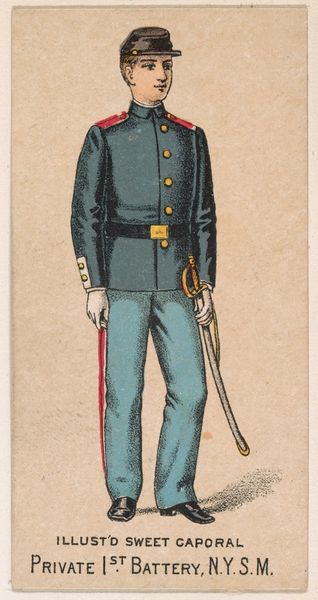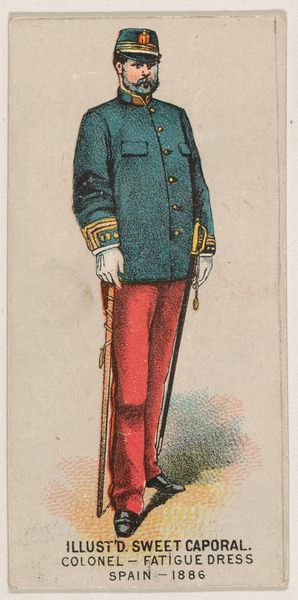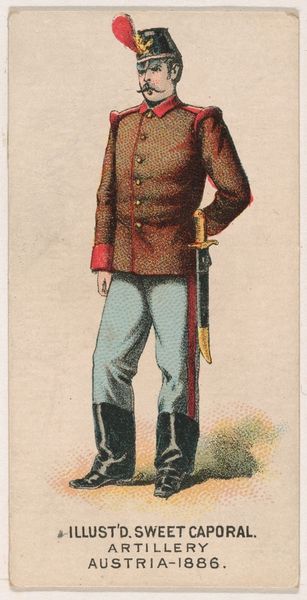
Tyrolese Sharp Shooter, Austria, 1854, from the Military Series (N224) issued by Kinney Tobacco Company to promote Sweet Caporal Cigarettes 1888
0:00
0:00
drawing, graphic-art, print
#
portrait
#
drawing
#
graphic-art
# print
#
men
#
history-painting
#
academic-art
#
profile
Dimensions: Sheet: 2 3/4 × 1 1/2 in. (7 × 3.8 cm)
Copyright: Public Domain
Curator: Look at this curious print titled, "Tyrolese Sharp Shooter, Austria, 1854," from the Military Series. It was actually created in 1888 by the Kinney Tobacco Company to promote their Sweet Caporal Cigarettes. What strikes you first about it? Editor: The lithography's flat planes and simplified rendering seem at odds with the heavy subject matter of a soldier and rifle. It's also printed on thin card stock meant for mass distribution. A soldier reduced to advertisement. Curator: Exactly! It prompts a multilayered exploration. Think about how war and national identity are packaged and sold, not just then, but how this intersects with contemporary branding and political messaging. The soldier's identity as a Tyrolese sharpshooter is reduced to a commodity. What historical narrative is being reinforced here? Editor: I see how the means of production—a cigarette card made of inexpensive materials for a mass audience—contradicts the individual valor this solider, rooted in Austria, supposedly embodies. There's also a dissonance: Tobacco products often stood in as tools that aimed to reinforce camaraderie between soldiers, so there is an exploitation present between that process. Curator: That tension speaks volumes about power, consumption, and the ways military might is co-opted to fuel consumer culture. This man represents an army, yet he is reduced to just another way to get someone to buy more product, and it does tie into the much larger history of the commodification of military personnel. Editor: I hadn't considered that before. Thinking about labor also seems critical: Who printed this? Were they also consumers of Sweet Caporal? Are we complicit in reproducing this same labor relation? Curator: Precisely. Analyzing it reveals complex and difficult social fabrics of identity, militarization, and class disparities. Editor: These material aspects are, fundamentally, revealing. Next time I reach for a snack, I'll remember that everything we have has a deep history behind it, one filled with workers and political history. Curator: And how something as commonplace as a cigarette card from 1888 connects so deeply to current issues of cultural appropriation, commodification, and identity.
Comments
No comments
Be the first to comment and join the conversation on the ultimate creative platform.
